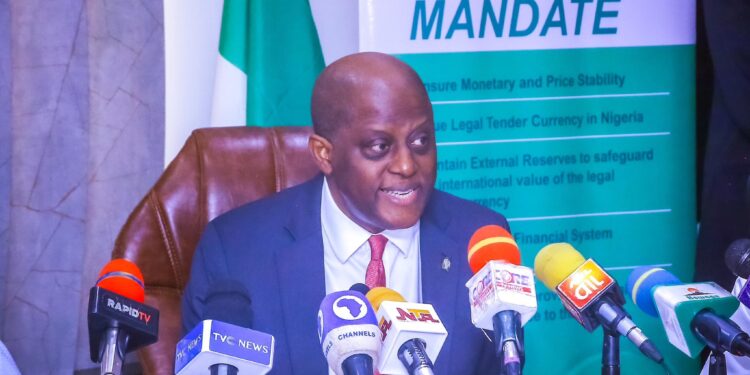CBN raises interest rate by 50 basis points to 26.75%

The Central Bank of Nigeria (CBN) Monetary Policy Committee has raised the interest rate by 50 basis points, from 26.25% to 26.75%. This decision was announced by the Governor of the CBN, Mr. Olayemi Cardoso, at the end of the apex bank’s 296th MPC meeting held in Abuja.
Key Monetary Policy Adjustments
In addition to the interest rate hike, the MPC has set the Cash Reserve Ratio (CRR) for Deposit Money Banks at 45%, while that of merchant banks is put at 14%. The liquidity ratio remains pegged at 30%. Furthermore, the apex bank adjusted the asymmetric corridor around the MPR from +100 to –300 basis points to +500 and –100 basis points around the MPR.
Reasons for the Rate Hike
Mr. Yemi Cardoso, Chairman of the Monetary Policy Committee (MPC), explained that the 50-basis point hike was driven by recent economic events, including rising inflation and the need to stabilize the foreign exchange market. He also referenced federal government policies to import specific staple foods such as rice, maize, and wheat to combat rising food inflation, cautioning that these measures should be carefully timed to avoid undermining gains in local food production.
Additionally, Mr. Cardoso praised the convergence between the official exchange rate and the parallel market rate as a step towards reducing arbitrage in the sector.
What You Should Know
This 50-basis point increase marks the fourth consecutive interest rate hike by the Central Bank in 2024, continuing the trend from similar MPR hikes in 2023. The cumulative increase in the MPR since Mr. Olayemi Cardoso assumed leadership at the CBN totals 800 basis points, raising the benchmark interest rate from 18.75% to 26.75%. The apex bank previously increased the MPR by 400 basis points in February, followed by subsequent hikes of 200 and 150 basis points.
Public and Business Reactions
While the CBN’s rationale for the rate hikes appears valid, there has been significant concern from the public, particularly the business community, regarding the high cost of accessing capital. Notably, Africa’s richest man, Alhaji Aliko Dangote, has voiced concerns, stating that economic growth and job creation will be hindered if bank interest rates remain at 30%.
The National Association of Chambers of Commerce, Industries, Mines, and Agriculture (NACCIMA) has also criticized the monetary policy tightening, arguing that it contributes to inflation rather than curbing it.
Conclusion
The CBN’s recent adjustments reflect ongoing efforts to address economic challenges, including inflation and foreign exchange stability. However, the impact on the business community and broader economy remains a topic of debate and concern among stakeholders.
